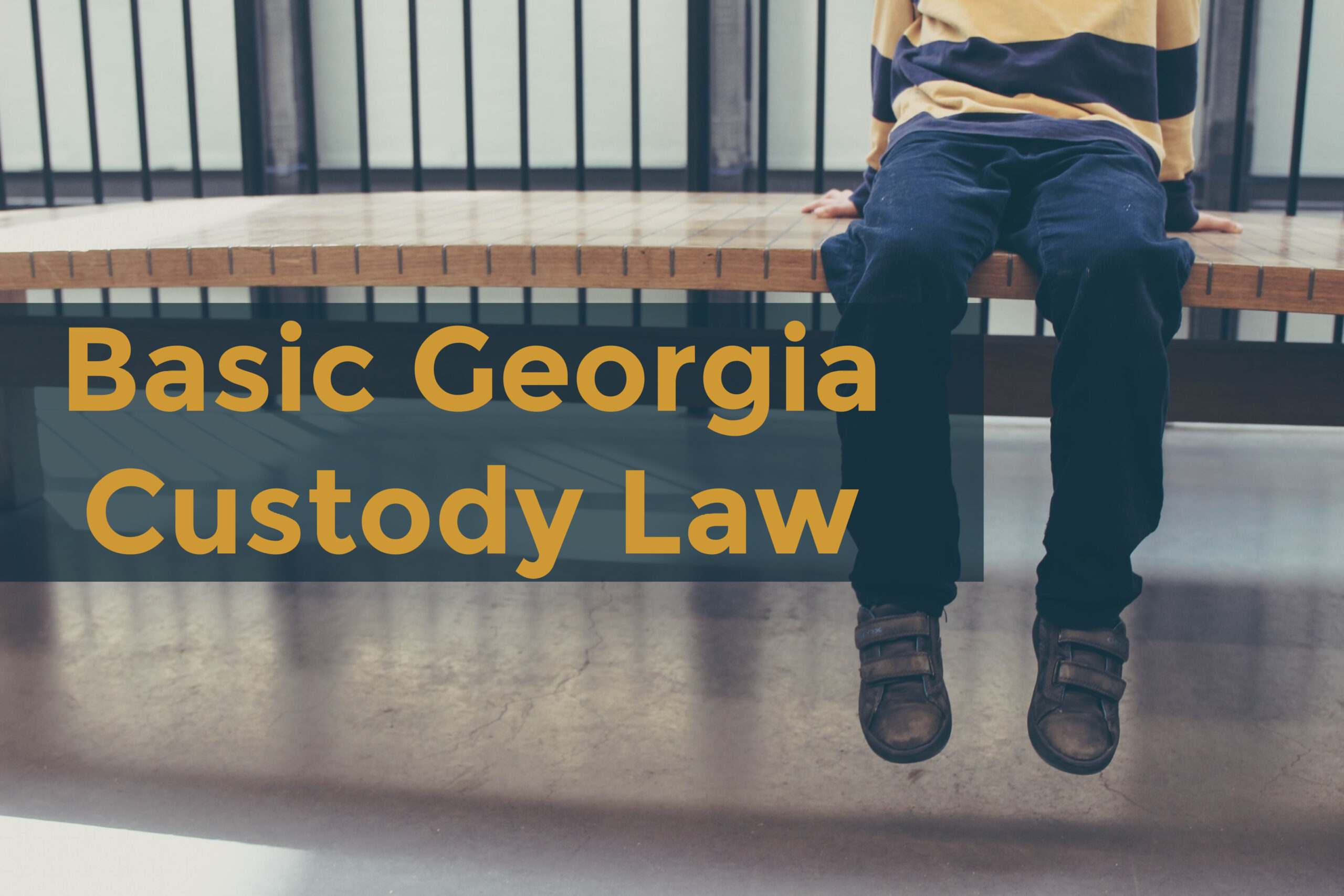Adoption, paternity, child support…
What does Georgia custody law say?
There are many situations that require a family lawyer, and very few of them are happy occasions.
However, those involving children tend to be much more emotional.
In this article, we’ll discuss some of the more common Georgia custody law issues—adoption, loss of custody, paternity, and child support—to give you a basic idea of what to expect in your case.
Adoption Basics
Adopting a child is one of the happier reasons for needing a family lawyer. Yet the system is not without its challenges.
Georgia Adoption Requirements
Not everyone is allowed to adopt a child in Georgia; you must meet certain requirements.

If you’re single and not related to the child (and not a stepparent of the child), then you must be 25 years of age or older and at least ten years older than the child. If you are a relative of the child, then you must be at least 21 years old. (You do not have to be ten years older than the child if you’re related to them.)
If the child being adopted is 14 years or older, the written consent of the child is required as well.
You must also provide evidence that you are physically, financially, and mentally able to have permanent custody of a child.
Stepparent Adoption
Stepparent adoptions are the most common form of adoption, but the process is different from other forms of adoption.
Before a stepparent can formally adopt a stepchild, the non-petitioning biological parent (or guardian, if only one parent is living) must “voluntarily and in writing surrender all of his or her rights to the child Georgia Code § 19-8-6 (2019)”
After surrendering their rights, the biological parent (or guardian) has four days to revoke their surrender and retain their parenting rights.
Where do I file?
In Georgia, a petition for adoption should be filed in the county where you live; however, there are certain exceptions.
If the court determines that you have “good cause,” you may:
- File in the county of the child’s domicile;
- File in the county of the child-placement agency that has legal custody of the child;
- File in the county where the child was born (if such petition is filed within one year of the child’s birth).
Paternity
We’ve all seen an episode of Maury where the host had to tell some unfortunate man, “You are not the father!” But (thankfully) most paternity cases don’t involve daytime television.

When a child is born out of wedlock in Georgia, custody is automatically granted to the mother. Because of this, most paternity cases occur for one of two reasons:
- The father wants to be involved in the child’s life
- The mother is seeking support from the biological father
If the man in question is found to be the child’s biological father, he may assert his legal rights to the child, if he so chooses. The mother may also petition her rights to child support payments and even litigation expenses (including the cost of genetic testing).
Filing For Paternity
Paternity cases typically center around three people—the father, the mother, and the child—a number of people may file a petition to determine paternity.
- The child
- The mother of the child
- A relative of the child in whose care the child has been placed
- A person alleged to be the father of the child
- Department of Human Services (if the child receives public assistance)

Child Support
First, we understand that an immense amount of emotional energy is involved in any divorce. And when children are involved, that’s a whole new level of emotional heavy lifting.
Georgia uses an Income Shares model, which estimates the total amount that parents would spend on a child in an intact family unit, then splits this amount between the two parents.
It is typically the non-custodial parent (the parent that has the children less than 50% of the time) that pays the child support payments, but being the non-custodial parent doesn’t automatically mean you will pay. Georgia courts will factor in your gross income and other deductions when calculating the amount you are responsible for. (A Child Support Calculator can be found here.)
Having children can complicate your divorce, but it doesn’t have to. We highly recommend speaking to a lawyer about fighting for your parental rights if you do get involved in a child custody battle.
Loss of Parental Custody
At ProPrudence, we believe that parenting is an absolute privilege but, of course, it is also a legal right…a right that can be taken away from you.
According to Georgia custody law, parents may lose custody of their children in cases of extreme suffering and neglect.
The Georgia Department of Family & Child Services is responsible for investigating claims of child abuse and/or neglect and proceeding with termination of parental rights (if necessary).
Whether you’re reporting abuse/neglect or if you’ve lost custody of your child(ren), we highly recommend speaking with a family attorney as soon as possible. These kinds of cases can be very complicated without legal assistance.
Conclusion
Georgia custody law is written to apply to multiple situations and scenarios and, as a result, our guidelines should not be used to determine what the outcome of your case will be.
Family law issues are highly subject to individual circumstances and final rulings will differ from judge to judge and case to case.
For guidance and assistance on your individual case, you’ll want to find a family law attorney who is familiar with Georgia custody law and has the experience to represent you. And there’s no better place to get connected with an attorney than ProPrudence.
Get started for free today.





